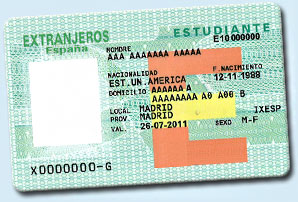Becoming an Expat Part III—Applying for Residency

Author's Note: This is the third article in a series on becoming an expat. See also, Check your Passport, and Selecting a Destination.
You have decided to move abroad. You have spent time in your new potential home and want to make it more permanent. Now your country of choice will decide if it wants you as a resident. As a citizen with a valid passport you are in general free to travel to many countries, but only for limited periods. Some countries require permission to enter. You need to apply for a visa. Residency is much more complicated. It requires a formal application and much paperwork and documentation. The requirements are set by the country you are entering, and there are as many paths to residency as there are countries. I can’t give you specific advice, but I can tell you some general patterns. I will use our application (as US citizens) for residency in Spain as an example.
Please note that residency is not the same as citizenship. We have retained our US citizenship but have permanent residency in Spain. To apply for Spanish residency we had to be residing in the US—not already in Spain.
Your first stop should be the embassy or consulate for the country to which you are applying. In our case, we contacted the Spanish Consulate in Houston, Texas, and made our application there. That was because we were living in New Mexico and our state was in the Houston “catchment area.” Search online for a list of relevant embassies or consulates in your country. You must work with the consulate appropriate to your area throughout the process of application and acceptance.
When we applied for Spanish residency, the documentation for a retired couple included proof of health, proof of income, proof of marriage, proof of a clear police record, proof that we had an address in Spain where we would live, and proof of health insurance. We had to have valid passports and photographs that met the Spanish Consulate requirements. We obtained our residency in 2008. We have learned from recent US expats in Spain that the requirements have become more complex.
There are usually different requirements for people who bring their own income and those who need to work. People whose recent ancestors were citizens of the country are often treated preferentially. There are sometimes different treatments for people who are considered “valuable” or “noteworthy” (famous) and those who are just ordinary folks. Sometimes having a specific and unique skill will smooth the way to residency. And, of course, marriage to a citizen of the new country is often helpful. However, there has been widespread abuse of “marriages of convenience,” so marriage is now looked at with considerable skepticism.
Go to the website for the country’s embassy or consulate that serves your area and download the requirements for various types of residency. See what you might be eligible for and start the application process. You can expect to travel to the consulate one or more times during the application process. Some consulates require that you turn in your application in person and then return for another visit to affix the visa to your passport. Our application at the Spanish consulate in Houston, Texas, took approximately three months to be processed but the process can take much longer. This gave us permission to go to Spain and apply for our national identity card. “Permanent” is a bit of a misnomer, since our residency permit still has to be periodically renewed.
Remember the bureaucrats behind the counter will evaluate not only your paperwork but your attitude. They have every right to approve or disapprove your application and place restrictions on your residency. I urge you to be polite and understanding in dealing with the officials of the country in which you are a guest and to give the citizens your appreciation as well. That attitude will get your farther than you can imagine.
Words to keep clear in your mind: passport, visa, residency, citizenship. Many difficulties ensue if you confuse these terms.


